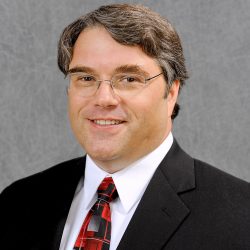 Dr. Chris Frey is the Glenn E. Futrell Distinguished University Professor of Environmental Engineering at NC State, the former chair of the EPA Clean Air Scientific Advisory Committee (CASAC), and has served on and chaired several CASAC review panels. The following excerpt is the introduction to a summary of key issues pertaining to EPA changes to the air quality science review process, and it was published as an evidence-based analysis and comment piece in The Conversation.
Dr. Chris Frey is the Glenn E. Futrell Distinguished University Professor of Environmental Engineering at NC State, the former chair of the EPA Clean Air Scientific Advisory Committee (CASAC), and has served on and chaired several CASAC review panels. The following excerpt is the introduction to a summary of key issues pertaining to EPA changes to the air quality science review process, and it was published as an evidence-based analysis and comment piece in The Conversation.
Many critics of government regulation argue that it reduces economic growth by making it more expensive for businesses to operate. But there is a strong counterargument that a clean environment is consistent with long-term economic prosperity. Here’s a compelling example: Since 1980, U.S. gross domestic product has grown by 165 percent, while emissions of six common air pollutants decreased by 67 percent – thanks largely to government regulation.
Science is a critical foundation of effective regulation. I have studied air pollution and air quality for over 30 years, and have been directly involved for a decade with the U.S. Environmental Protection Agency’s reviews of scientific findings on air pollution. This includes seven years of service on the agency’s Clean Air Scientific Advisory Committee, or CASAC, and stints on 10 specialized panels focused on individual pollutants.
In my view, the Trump administration’s focus on short-term profit-taking based on regulatory rollback fails to recognize the importance of science-based regulation. Alarmingly, a multi-pronged attack on science at EPA is threatening air quality standards that by law are required to protect public health.
Dr. Frey’s full summary is available here.
In addition to this published summary, Dr. Frey has joined with 16 national colleagues, all of whom are former members of the CASAC Ozone Review Panel that he chaired in 2012-2014, to release a written public statement to EPA that analyzes the recent changes to the air quality standard science review process. Based on their analysis, they have 7 major findings and 30 recommendations for restoring the quality, credibility, and integrity of the review process. That public statement is available here.
